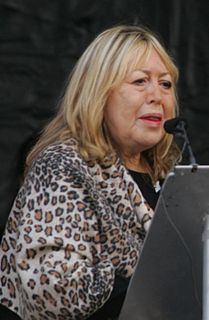A Quote by Zbigniew Brzezinski
Indeed, for almost 10 years, Moscow had to carry on a war in Afghanistan, unsupportable by the government, a conflict that brought about the demoralization and finally the breakup of the Soviet empire.
Related Quotes
Regret what? That secret operation was an excellent idea. It had the effect of drawing the Russians into the Afghan trap and you want me to regret it? The day that the Soviets officially crossed the border, I wrote to President Carter. We now have the opportunity of giving to the USSR its Vietnam war. Indeed, for almost 10 years, Moscow had to carry on a war unsupportable by the government, a conflict that brought about the demoralization and finally the breakup of the Soviet empire.
In 2001, we were told that the war in Afghanistan was a feminist mission. The marines were liberating Afghan women from the Taliban. Can you really bomb feminism into a country? And now, after 25 years of brutal war - 10 years against the Soviet occupation, 15 years of US occupation - the Taliban is riding back to Kabul and will soon be back to doing business with the United States.
I'm a historian by training and by conviction. And so the thing that has throughout informed my thinking about international relations is history. I think, for example, the reason that I was perhaps able to see sooner than some others that the Soviet Empire in Eastern Europe was decaying--if not disintegrating--was that I came to it through history and through Germany, rather than through Sovietology and through Moscow. And therefore the starting point was that no empire in history has lasted forever, and this one won't either.
In 1897, troops from the greatest empire the world had ever seen marched down London’s mall for Queen Victoria’s diamond jubilee. Seventy years later, Britain had government health care, a government-owned car industry, massive government housing, and it was a shriveled high-unemployment socialist basket-case living off the dwindling cultural capital of its glorious past. In 1945, America emerged from the Second World War as the preeminent power on earth. Seventy years later . . . Let’s not go there.
National Defense A strong USA defense brought down the Soviet Union. It was Ronald Reagan - first in a speech at Notre Dame University in May 1981, then his 'Evil Empire' speech of March 1983 - who most eloquently declared communism's imminent demise. Reagan was right. And even Soviet officials attribute Ronald Reagan's rhetoric and foreign policy to bringing down that 'evil empire.' By Christmas Day, 1990, the Soviet Union ceased to exist. Liberals wished it were other things.
Mother’s Day really was in its origin an antiwar day, an antiwar statement. Julia Ward Howe was sickened by what had happened during the Civil War, the loss of life, the carnage, and she created Mother’s Day as a call for women all over the world to come together and create ways of protesting war, of making a kind of alternate government that could finally do away with war as an acceptable way of solving conflict.
When you look at my life, you can go back to the late 1930s, what I saw was, first of all, Hitler, he was going to live forever. Mussolini was in for 10,000 years. You had the Soviet Union, which was, by definition, going to last forever. There was the British empire -- nobody imagined it could come to an end. So why should one believe in any kind of permanence?
The Soviet Union came apart along ethnic lines. The most important factor in this breakup was the disinclination of Slavic Ukraine to continue under a regime dominated by Slavic Russia. Yugoslavia came apart also, beginning with a brutal clash between Serbia and Croatia, here again 'nations' with only the smallest differences in genealogy; with, indeed, practically a common language. Ethnic conflict does not require great differences; small will do.
In Moscow, dim and green under the summer rain, columns of armour were waiting in the side-roads off the long avenue from Vnukovo airport. Tanks from the Taman Division stood beneath the dripping trees around Moscow University with their field kitchens and command trucks. This was not a new sight to me: the Soviet tanks had rested like that beneath the trees of the parks in Prague, late in another August twenty-three years before. Now they had invaded and crushed one more country -- their own.
































